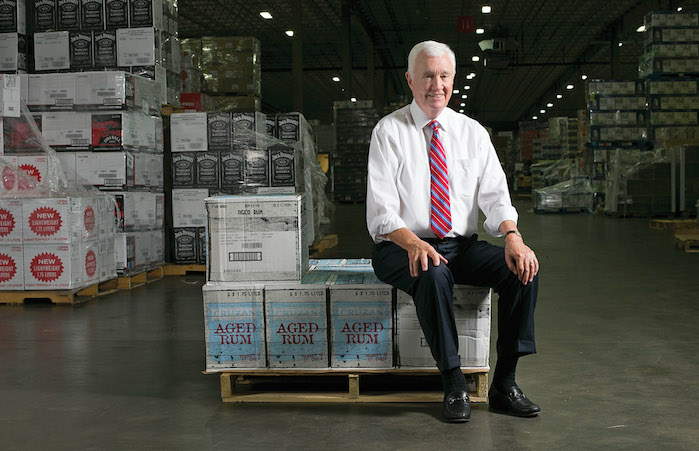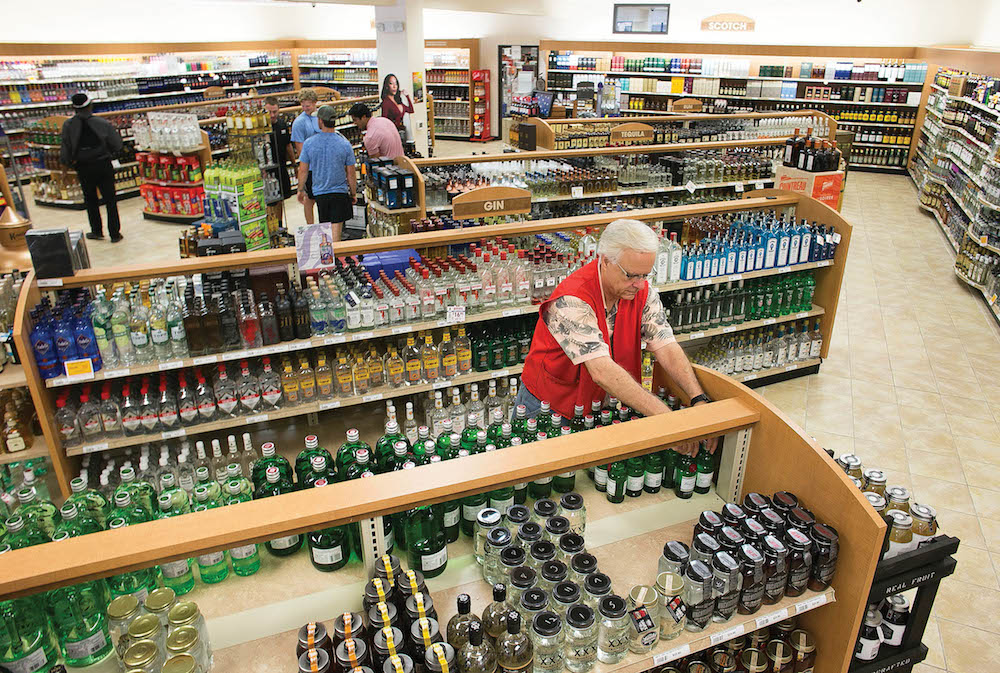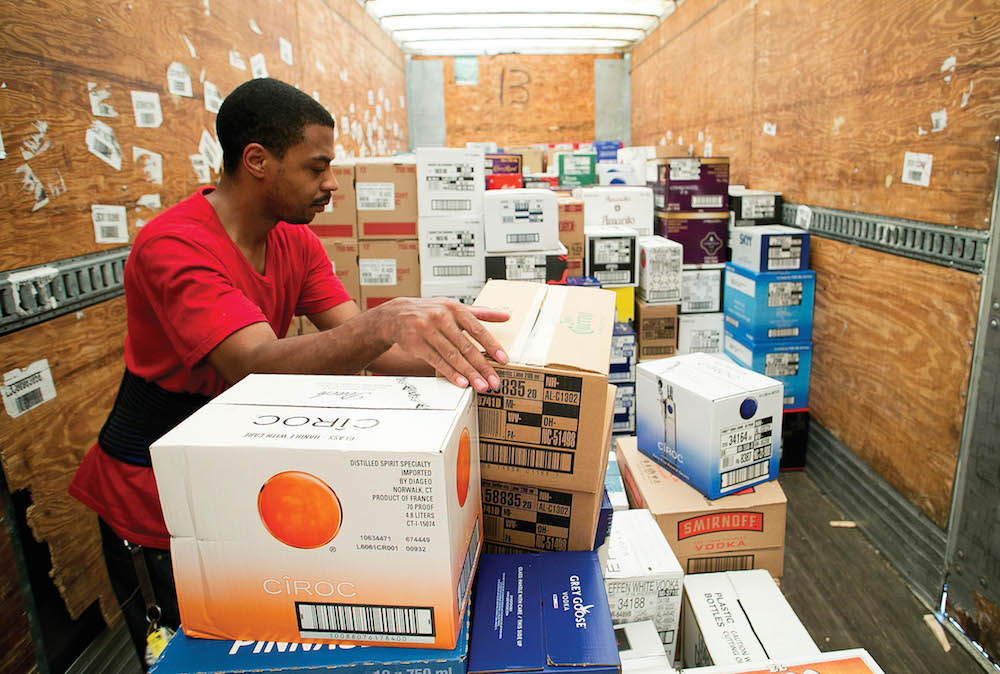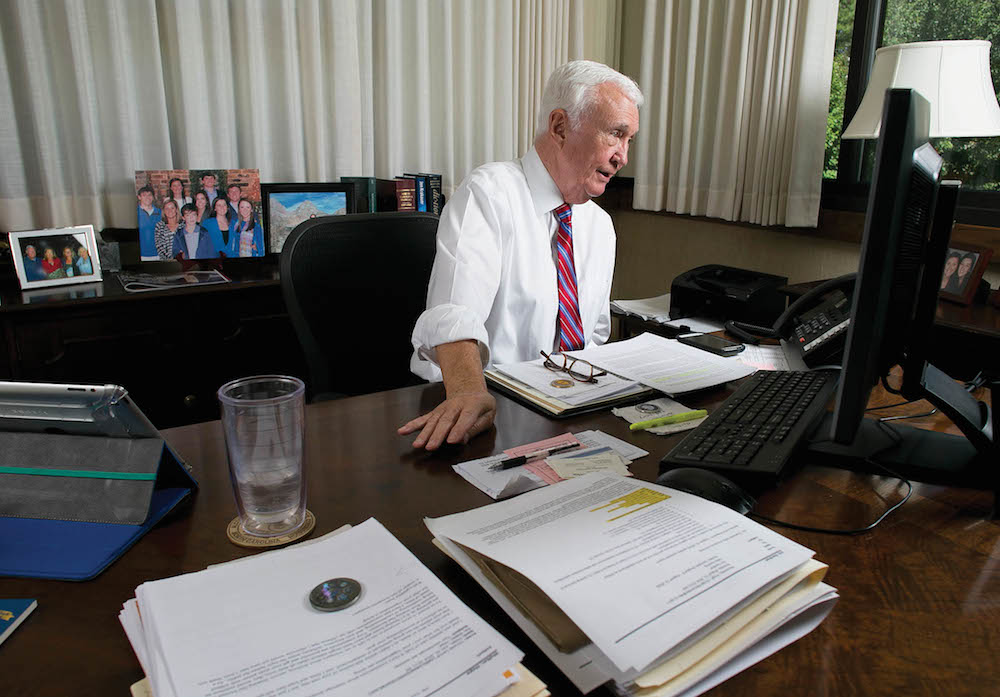
It’s been almost four years since Jim Gardner was appointed Chairman of the North Carolina Alcoholic Beverage Control (ABC) Commission, and in that time the agency has made huge strides in the areas of growth and enforcement. The main focus of Gardner’s tenure has been to combat underage drinking, and the ABC Commission’s “Talk It Out” campaign has been praised for its detailed comprehensiveness and wide scope. Still, Gardner stresses that there’s much work to be done in this and other areas to bring North Carolina to the level of compliance it needs.
Strong and Steady Growth
When North Carolina Governor Pat McCrory appointed Gardner to the role of Chairman in February 2013, he did so in spite of the fact that Gardner had no previous experience in the liquor industry. Rather, Gardner brought a plethora of knowledge gained through experience working in business and in the food industry. He previously served as Co-Founder and Executive Vice President of Hardee’s Food Systems, Inc., and Vice President of Gardner Dairy Products. Gardner is also a military veteran, having served in the United States Army.
“My entire life outside of politics is in the business industry, and it was a natural fit with the North Carolina ABC Commission,” Gardner says.
Indeed, the Raleigh-based ABC Commission is run just like a large business. Operationally, North Carolina is unique in that the agency acts as the single wholesaler in the state, distributing more than 2,200 listed products and more than 2,000 special orders from two 200,000-square-foot warehouses. However, all retail sales are managed by individual ABC boards. The 425 ABC stores are owned and operated by the local jurisdictions in which they reside. A total of 166 local ABC boards operate the stores and select all liquor sold in the retail stores. The boards are all appointed by county commissioners or city councils, and are integral parts of the communities they serve.
At the ABC Commission headquarters, approximately 50 staff members provide support, issue permits and manage violations. The agency also maintains strong partnerships with coalitions and community groups throughout the state, working together to address challenges, collaborate on programming and share resources.

Firm Believer In How The Agency Operates
“When I first arrived in North Carolina, there was lots of talk about privatization,” he recalls. “Our system is profitable. It’s worked since 1937. And all the money gets put back into the cities, counties and the state. I’m strongly opposed to the idea of privatization. In ‘ABC,’ the ‘C’ stands for ‘control.’ We have the ability to control the dangerous aspects of alcohol abuse, so hopefully all that talk of privatization is behind us. This system starts at the local level and involves the state. That pride of ownership you see here is something you just can’t replace.”
The ABC system is also on the cutting edge of modernization compared to similar state operations. One recent technological enhancement is a mobile app several of the larger boards are putting into place to help clerks quickly and accurately scan IDs to identify fakes.
“The app can recognize IDs from any state, and it’s going to make it so much easier for retailers to prevent underage sales,” Gardner says.
As a result of its efficiencies, the agency has experienced phenomenal growth over the past several years. During the 2016 fiscal year, gross sales at ABC retail stores generated more than $1 billion in revenue, with 5.6 million cases of product shipped. The ABC Commission contributed a total of $1.5 billion to the state’s general fund over the past five years, and 98% of the ABC boards operate profitably. Gardner credits this momentum to growth within the state of North Carolina itself, and also the great work being performed by the ABC Commission staff.

Focusing On Enforcement And Education
The ABC Commission has also focused extensively on enforcing violations throughout the state. Last year, fines collected for violations amounted to more than $900,000, and all of that money was turned over to the various school districts where each violation took place. The Commission is required to attempt to settle cases whenever possible. Fines in North Carolina are steep: sale to underage or intoxicated persons can result in a $2,000 penalty for the first offence. A $4,000 fine along with an automatic three-day permit suspension is standard with the second offence of this type of violation. ABC permit holders who receive three violations within a three-year period are subject to a proposed settlement of 15 days active suspension and a penalty of $5,000.
While enforcing violations is a top priority for the agency, Gardner says it’s become increasingly difficult to do so due to a lack of resources in this area.
“We currently have a total of 60,000 permits across the state of North Carolina, and we have fewer NC ALE agents on the ground than we had back in 1992, when the number of permits was much smaller,” he explains. “The enforcement funds have not kept up with the growth of alcohol across the state.”
The ABC Commission heavily invests in providing training and educational programs. In-person training opportunities are supplemented by online training options, which are free and available 24/7. By working closely with permitted establishments, Gardner hopes to help people better understand their responsibilities and eventually eliminate all violations.
Education is at the core of the ABC Commission’s work, and when Gardner was appointed to his position, he was tasked with focusing on combating underage drinking. The issue is a big one in North Carolina, and in addition to coping with the loss of many lives each year due to underage consumption, the state spends more than $1.3 billion annually on related incidents, causing financial strain.
Prior to launching a large-scale campaign, the ABC Commission opted to conduct research with various target audiences to determine where the root of the problem lay and what the best approach would be to address them. After seeking advice from other states and conducting more than 500 interviews with parents and children, the agency determined that the average age children begin drinking is 13, and that children seek more guidance from their parents about the dangers of alcohol than they are currently receiving.
As a result of their research, the ABC Commission launched the “Talk It Out” campaign, which began in 2014. The initiative utilizes various channels — such as television, radio, billboards, bumper stickers and social media — to drive people to talkitoutNC.org, a website full of resources intended to help parents converse effectively with their children about alcohol. Additionally, the website contains detailed information on adolescent brain research, which indicates that the human brain isn’t fully developed until the age of 25, and details the dangerous effects that alcohol can have on youths’ brain development. The entire “Talk It Out” campaign, which is currently in its third phase and is entirely self-funded by the Commission, has an annual operating budget of $3.1 million.

The messages featured in the campaign are emotional and hard-hitting. When “Talk It Out” initially launched, the first video showed four families discussing how their lives had been affected by underage drinking. Several parents are shown talking about how their children were critically injured or killed as a result of alcohol-related incidents. Gardner recalls that he was concerned the ads might be a little too tough to share with the public, so the agency asked three parents who have lost children due to underage drinking to review the ads, share their input and help determine whether the ads were too intense.
“One of the parents who reviewed the ad called me up and said, ‘Let me tell you what’s tough: when you get a call at 3 a.m. from someone you don’t even know telling you that your son is dead. That’s too tough. You run these ads.’ And we did,” Gardner says.
Steve Sciascia, Mayor of the town of Harrisburg, North Carolina, participated in a “Talk it Out” video campaign by sharing the story of his son, Joseph, who was killed in an underage drinking-related accident in 2011.
“Losing a child to something as preventable as underage drinking is more than any family should have to endure,” Sciascia says. “The ‘Talk it Out’ initiative provides parents the tools necessary to start the conversation and hopefully prevent tragedy in their families. I won’t get a second chance to start the conversation with my son, and I hope parents take my second chance to utilize the resources available on www.talkitoutNC.org.”
Gardner is committed to running the “Talk It Out” campaign until not a single life is lost in North Carolina due to underage drinking: to him, that is the only sign of success.
“We lose about one life per week in North Carolina due to underage drinking,” he says. “We really need to stay the course with this campaign. If we continue to do what we’re doing, we can ultimately have a major impact.”
As a grandfather of nine, Gardner says he has nine big reasons for ensuring that “Talk It Out” is successful.

Looking To The Future
What’s next for the ABC Commission, which has seen so much success in recent years? Gardner says that his plan is to continue building upon the foundation that the agency already has in place, especially as it relates to underage drinking.
“We are going to keep our eye on the ball and keep talking to parents,” he says. “We want to truly change the culture here.”
Seeing as how North Carolina’s “Talk It Out” program has been so successful, does Gardner have any advice for other states interested in improving their underage drinking prevention programs? The key, he says, is to make it a top priority.
“Every state in this country has the same problem we do in regards to underage drinking,” Gardner says. “We made the decision that we had a responsibility as a state to address it, and we knew we needed to substantially fund it in order to make a real difference,” he says. “I think it’s the best decision we ever made, and I hope and pray we can continue to maintain this.” •
Melissa Niksic is a freelance writer and marketing communications strategist from Chicago, IL. Her work has appeared in Chicago’s Daily Herald newspaper, Time Out Chicago, Suburban Life newspapers, and various magazines. She is also the author of several children’s books. Follow her @MelissaNiksic.
Captions
The ABC Commission’s “Talk It Out” campaign has been praised for comprehensively combatting underage drinking.
The Raleigh-based ABC Commission is run just like a large business.
One recent technological enhancement for the ABC Commission is a mobile app.
Gardner plans to continue building upon the foundation already in place, especially with underage drinking.









